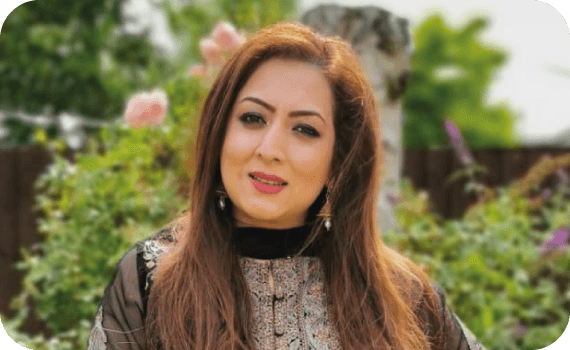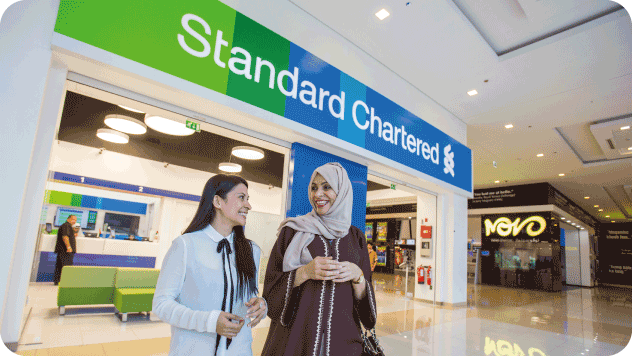Seeing through adversity to find your voice
Ayesha initially struggled with confidence because of her ‘lazy eye’ syndrome, but has gone on to become a powerful voice promoting change and diversity

When you’re in a situation, you deal with it. It’s usually when we stop and look back, we realise how far we’ve come.
As a woman of Asian origin working in the Middle East, in an industry that for the longest time was predominantly male, and who suffers from amblyopia (‘lazy eye’), I look back on my journey as one of learning, and of realisation.
I learned to overcome the shyness I felt because of my eye condition, to challenge the norms that as a woman I had constantly been fighting against: for example, the assumption that Western women are more capable, or that they are inherently more successful. Now I am doing what I can to fight the fight for diversity.
Feeling included
Lazy eye is a condition many might not consider to be a disability, but I can tell you having lived with it, that it does hugely change how people see you, and in turn how you live.
At first I found being accepted a struggle, be it at school or work or in social gatherings. People would often ask me ‘is there something wrong with your eye?’ as they were not sure if I was looking at them while addressing them. I’ve shed a few tears in the ladies’ room, especially in my early professional years, over that kind of thing.
Thankfully, when I joined Standard Chartered, I found it to be a place accepting of everybody. I remember once being in a big meeting about sustainability. I was presenting, and I turned up with this big stack of paper because I couldn’t present using the screen or my eye would get tired. I was so nervous, everybody looking at me, but I found the courage to tell the others why I was doing it this way, and that was the first moment I knew Standard Chartered was an inclusive organisation.
The others were so kind and accepting of me, totally understanding my position, and it was one of the times I’ve felt most accepted at work. It really wasn’t an issue, and I now have the confidence to speak out about my condition, as well as about diversity and inclusion in general, which are so very close to my heart.
Embracing diversity
As someone who has struggled with issues related to a physical condition, and as a woman, I understand the importance of spreading a message of inclusion. I’m a gender equality ambassador for the bank, and I’m on Standard Chartered’s UAE diversity and inclusion council.
When I first took over my new role, my team was exclusively South Asians. Over time, under the leadership and direction of our CEO, the team has developed to include people from all over the world, and we are so much better for it. I truly believe that diversity goes beyond nationality and gender; it is inclusive of experiences, ethnicity, viewpoints, and ways of life. Conversations in diverse teams are so much richer, views so much more varied. Teams can really produce gold if they embrace diversity and actively champion it.
When I interview people, I ensure not only that we talk to a diverse range of candidates, but also that the panel is diverse. I encourage women to be bold, as they still only tend to apply for roles that they believe they are 100 per cent ready for, while their male counterparts take more risks in role selection.
Telling stories
Since I’ve spoken out about my experiences, the reaction has been incredible. I really didn’t expect it. Random people have reached out to me to tell me I have inspired them, especially people with similar physical conditions. Talking to people who have similar experiences is so overwhelming. The feeling of being able to just relate is enormous.
A dad came up to me recently saying he would be showing my story to his daughters, to show them that people like me were real, and that he knows them! As a young girl many moons ago, I could never have imagined I would overcome this one day, but here I am.

My message to women and those with disabilities: you are able, you do have a voice, and your voice needs to be heard
Ayesha Abbas General Manager - Standard Chartered UAE
My message to those who don’t fall into those groups is that you need to give us space and understanding, and work on challenging unconscious biases. There is a place for everyone in society. Work hard, educate yourself and take risks, no matter who you are and where you come from. Luck is sometimes needed, but luck doesn’t always come, so work hard and believe in yourself.